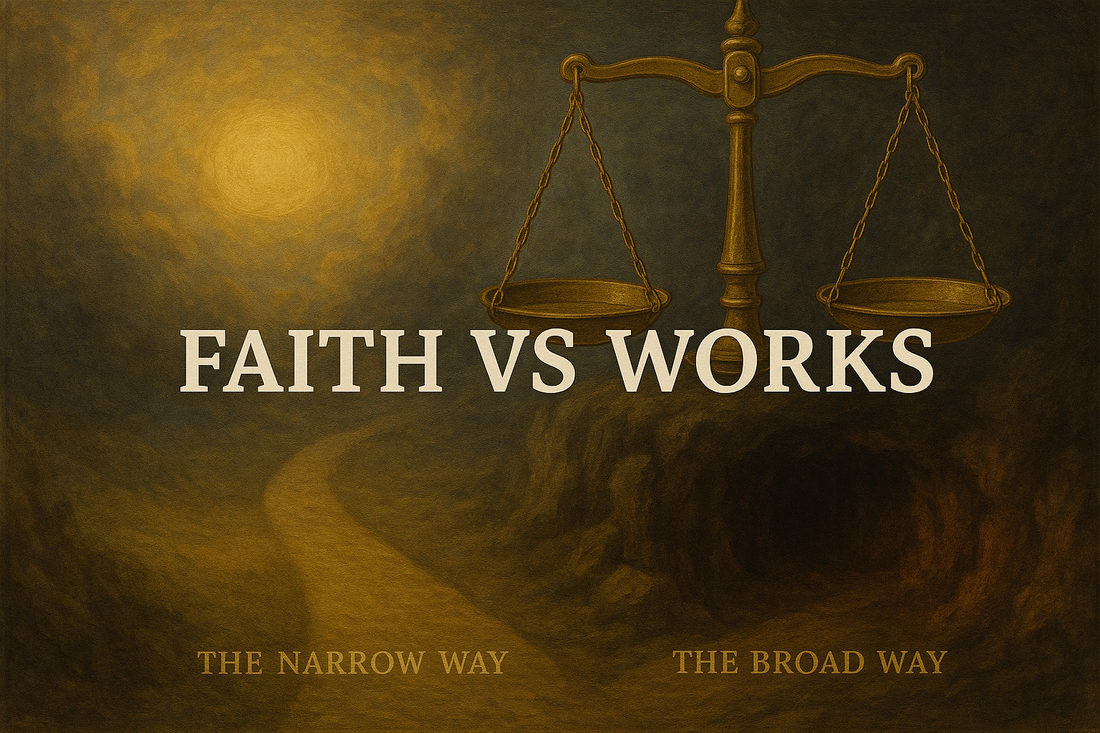
Predestination and the Paths of Grace: How Paul Divided the Reformation
Faisal AlsagoffShare
When Paul wrote that God “predestined us before the foundation of the world,” he ignited a fire that still burns through Christianity. Calvin saw in those words the thunder of divine control — a God who chooses and never wavers. Luther heard a gentler echo, a mystery of mercy that invites faith but defies reason. Wesley, however, heard a heartbeat — the pulse of a God whose love reaches every soul and restores freedom to choose Him. Three men. One apostle. And from Paul’s pen flowed three visions of grace that would split the Reformation — sovereignty, faith, and freedom — each claiming to reveal the true rhythm of salvation.
Predestination — the idea that God chooses who will be saved — is one of Christianity’s most challenging doctrines. Its roots lie deep in the writings of the Apostle Paul, especially in the Epistles to the Romans and the Ephesians. From these letters, theologians have drawn very different interpretations of divine will, human freedom, and salvation. Among Protestants, no debate has been fiercer than that between the Methodists, Calvinists, and Lutherans — each claiming Paul’s authority, yet reading him through a different lens of grace.
#1. Paul’s Foundation: The Mystery of Divine Election
Paul’s writings are full of paradox. On one hand, he insists that salvation is the free gift of God’s mercy, not human merit. In Romans 8:29–30, he declares that those whom God “foreknew He also predestined,” and in Ephesians 1:4–5 he writes that believers were chosen “before the foundation of the world.” These words gave rise to centuries of theological debate. Was Paul describing God’s foreknowledge of human faith — or His sovereign decision apart from human choice?
For Paul, grace is the heartbeat of redemption. Yet his thought carries two rhythms: one of assurance — that God’s plan cannot fail — and another of responsibility — that faith and obedience remain vital. How these two notes harmonize depends on which tradition you follow.
#2. Calvinism: God’s Sovereign Will and the Elect
John Calvin read Paul as the champion of absolute sovereignty. For Calvin, passages like Romans 9:15–18 (“I will have mercy on whom I have mercy”) mean that salvation depends entirely on God’s will. Humanity is spiritually dead; no one can choose God unless God first regenerates them. From this came the doctrine of **double predestination** — that God elects some to salvation and passes over others, all for His divine glory.
Calvinists believe Paul’s intent was to humble human pride. Grace is irresistible, faith is a divine gift, and the elect will persevere to the end. Salvation cannot be lost, because it never depended on human effort. This theology forms the backbone of Reformed Christianity — austere, logical, and deeply rooted in Paul’s sense of God’s unsearchable purpose.
#3. Lutheranism: The Paradox of Grace and Faith
Martin Luther also found his theology in Paul, especially in Romans 1:17: “The just shall live by faith.” But Luther’s emphasis was not on predestination; it was on **justification by faith alone**. For him, Paul’s words liberated the soul from legalism, not into fatalism. God’s grace saves the sinner, but humans are still called to respond in faith.
Luther acknowledged predestination but left it as a holy mystery, not a system. He rejected the idea that God created anyone for damnation. God’s election, in Luther’s view, was meant to comfort the believer, not terrify them. He balanced Paul’s divine decree with Paul’s pastoral heart — a God who calls “all men to be saved” (1 Timothy 2:4), even if not all respond.
Luther’s followers thus live within a paradox: salvation is entirely of grace, yet offered universally. They resist Calvin’s strict logic and Wesley’s activism, standing instead in a tension that mirrors Paul’s own awe before the mystery of God’s will.
#4. Methodism: Free Grace and the Human Response
John Wesley, the founder of Methodism, took Paul in an entirely different direction. For Wesley, Paul’s “calling” and “election” were never meant to limit salvation, but to describe God’s inclusive grace. Wesley introduced the doctrine of **prevenient grace** — the divine influence that “goes before” every person, awakening them to faith. It restores the freedom of will lost in sin, allowing all people the genuine choice to accept or reject God’s offer of life.
In Wesley’s eyes, Calvin’s predestination blasphemed the love of God. He declared that Christ “tasted death for everyone” (Hebrews 2:9) and that God’s grace “has appeared to all men” (Titus 2:11). Paul’s message, Wesley argued, was not that God predetermines some to heaven, but that He empowers all to respond to His call. Grace is universal, but it must be accepted and lived out through faith, obedience, and love.
This is why Methodists emphasize **sanctification** — the lifelong process of becoming holy. Paul’s call to “work out your salvation with fear and trembling” (Philippians 2:12) is not a denial of grace but a summons to cooperate with it. For Wesley, Paul was a teacher of partnership — divine power and human will joined in transformation.
#5. Three Visions of the Same Apostle
| Aspect | Calvinist View | Lutheran View | Methodist View |
|---|---|---|---|
| Nature of Grace | Irresistible; given only to the elect. | Freely given; resistible only in mystery. | Universal; prevenient and cooperative. |
| Human Will | Entirely bound; no real freedom in salvation. | Bound by sin, yet able to respond to grace. | Freed by prevenient grace to choose God. |
| Purpose of Predestination | God’s glory and absolute will. | Comfort for believers, not fear. | Assurance that God offers salvation to all. |
| Salvation | Fixed by divine decree; cannot be lost. | Gift of faith; held by trust. | Journey of grace; can be forfeited by willful sin. |
| Paul’s Emphasis | Romans 9 – Sovereignty of God. | Romans 3–5 – Justification by faith. | Philippians 2, Titus 2 – Grace active in all. |
#6. The Continuing Debate
Paul’s words have inspired both comfort and controversy. Calvinists see in them the majesty of divine control; Lutherans, the paradox of trust and mystery; Methodists, the freedom of universal love. Each school claims to honor Paul’s vision — yet they reveal how differently the same apostle can be understood.
In the end, Paul’s letters were not meant as abstract philosophy but as living encouragement. His predestination is not a wall, but a window — through which believers glimpse a God both sovereign and merciful, both judge and redeemer. Whether one follows Calvin’s logic, Luther’s paradox, or Wesley’s compassion, Paul’s words remain the echo of faith’s oldest cry: that salvation begins and ends with grace, but lives in the human heart that dares to answer it.
Conclusion
Predestination, in all its interpretations, reveals humanity’s struggle to understand divine purpose. Calvin framed it as the majesty of God’s will; Luther saw it as the mystery of faith; Wesley transformed it into the language of love. All three stood at Paul’s feet, gazing into the same eternal truth — yet each saw a different facet of the divine. And in that difference lies the beauty and the burden of Christian freedom.









